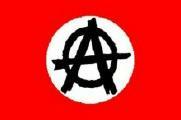 |
|
EMPIRE AGAINST EMPIRE by Constantin von Hoffmeister An empire that embraces anti-imperialism as its prime directive is an empire that will last. AmeriKa is an empire that is imperialist in nature. It is aggressive, domineering and hell-bent on conquering new territories, subjugating them under its cultural and economical spheres of influence. AmeriKa wants to rule the world, impose its way of life on all peoples it subjugates and thereby usher in the final dawn of mankind. Resistance to this kind of Americanized globalization is met with annihilation. AmeriKa has become the tool of Aryan and Jewish ambitions to control the world’s peoples and territories according to the wannabe salvational principles of the two related tribes. AmeriKa’s indigenous European peoples have been designated to become the discardable pawns in this global quest for control and genocide through murder and multiculturalism. The European population of AmeriKa must free itself from the bondage of their oriental overlords and unite with their cousins in the Old World to become one once more. The new European empire will be anti-imperialist in that it will recognize the rights of its freely federated territories. In the new European empire, nation-states will be abolished as they exemplify relicts of a feudalist, and hence imperialist, past. Instead, newly established regions, that reflect ancient ethnic, linguistic and cultural entities (recognized will be even the smallest entities, such as the Basque and the Sorb territories), will be set up in a decentralized federation. Thus, there will be no “leading nation” and no “leading people.” Instead, ethnic equality will become a reality through radical measures that will include the dismantling of symbols of chauvinism, symbols that have haunted Europe for millennia, symbols that were ultimately responsible for horrible fratricidal wars all throughout European history. burn the churches, comrades! There will be no main power base and no “leader” in this European federation. Instead, a council will be set up in the yet not chosen capital of the new European federal empire. In this council, representatives of all the sovereign European regions (entities) will form a ruling party that will act in the interests of all the different European peoples. In this way, internal policy, benefiting the development of the various regions, will have a chance to be implemented, and foreign policy to secure the long-term interests of the empire will be decided upon (with all regional members of the party committee having an equal say). The party will always be right in that the party will serve the interests of all Europeans with respect to their varying ethnic, cultural and linguistic traits. The early Bolshevik regime and its nation policy of “re-root-taking” can serve as an example. When the Soviet Union was established in 1922, wise Lenin had the foresight to grant independence to all territories within the former sphere of control of the then deposed Tsar. Tsarist Russia was decidedly imperialist in that it did not recognize the legitimate ethnic interests of the non-Russian territories that Russia controlled (therefore uprooting and delegitimating the unique national characteristics of these territories). Lenin insisted on the right to self-determination of all nations. While the Whites were political reactionaries and Russian nationalists, the Reds were revolutionaries in that they wanted to rid the Eurasian heartland of Russian chauvinism. The Bolsheviks promoted social equality and a voluntary federation of the various Eurasian nations. After the victory over the Whites, the Bolsheviks established the Union of Soviet Socialist Republics on 30 December, 1922. In practice, this meant that all republics were considered equal in the new Communist/Eurasian empire. In contrast to Tsarist policy, the administration of the non-Russian republics was left to local elites. The cultural tolerance of the Bolsheviks manifested itself in the promotion of non-Russian languages and traditions. 48 ethnicities received new written languages (in Latin, not Cyrillic, script) and non-Russian languages were used in administrative and education facilities. In this way, illiteracy was successfully reduced and independent regional development guaranteed. run up the hill, comrades! |
|
| Posted
by New Nation News Views expressed not necessarily those of NNN and vice-versa but presented as a public service for review. |
